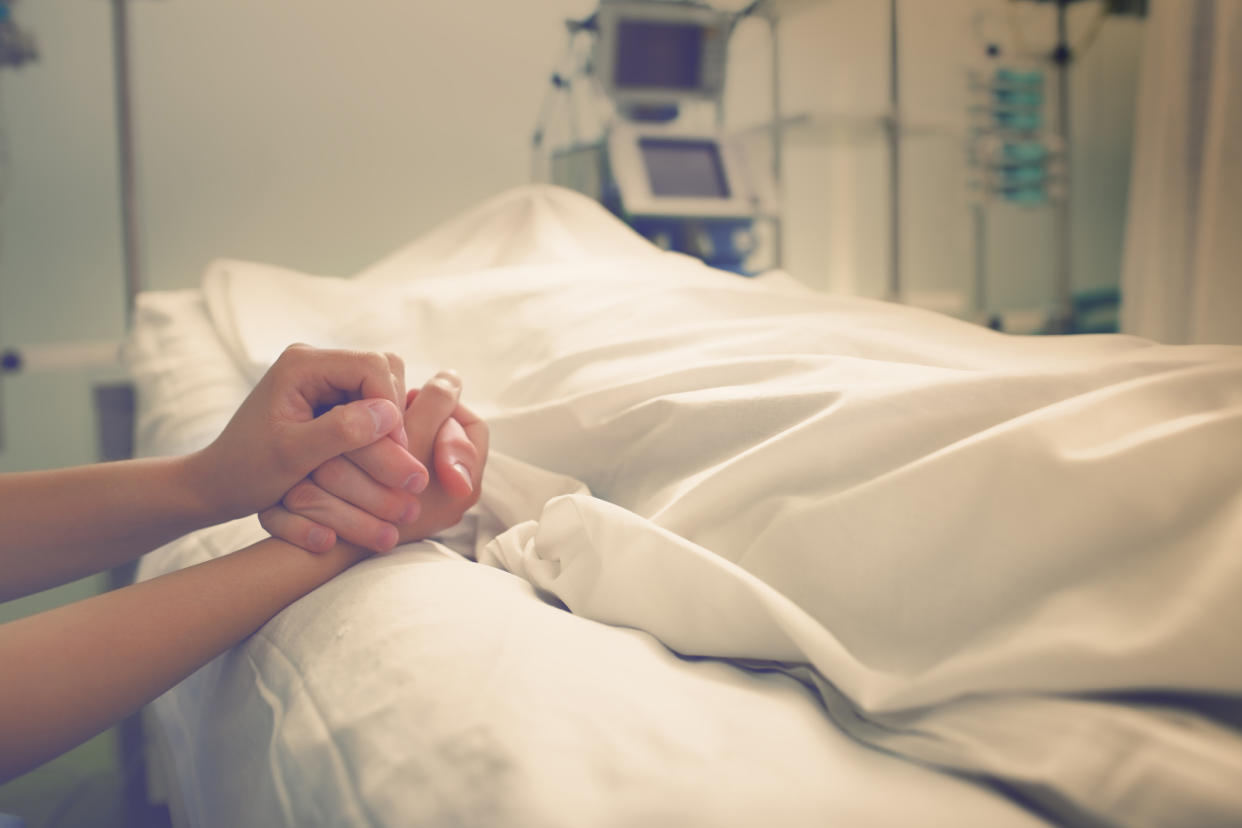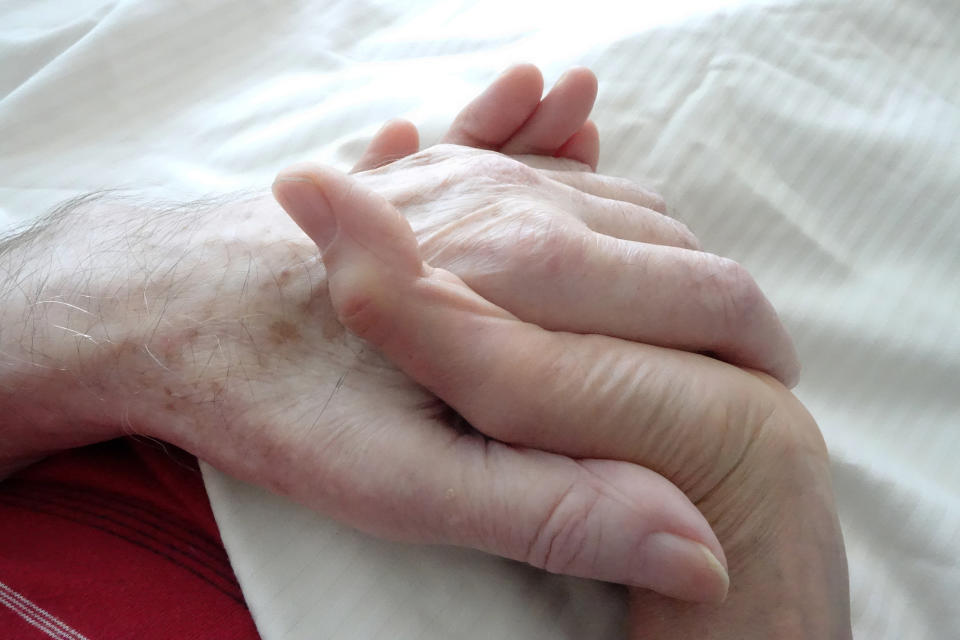Death bed etiquette: what to do if you can’t say goodbye to a loved one

Experts have released a new guide on deathbed etiquette to help people adapt to saying goodbye to their loved ones during the coronavirus pandemic.
Some families’ final goodbyes have been impacted by the COVID-19 outbreak, with some unable to be with their loved ones as they die.
So the Centre for The Art of Dying Well at St Mary's University, London, has put together a guide to help families and friends feel close to a loved one if they cannot be physically be there.
Last week, Health Secretary Matt Hancock said “wherever possible” people will be given the “chance to say goodbye” to loved ones with COVID-19.
“Wanting to be with someone you love at the end of their life is one of the deepest human instincts,” he said.
But some families face being unable to visit loved ones because they live too far away, have symptoms of coronavirus themselves, or are in the vulnerable group advised to shield.
Read more: Choir members record song from home to raise funds for domestic abuse victims
So the new guide provides some advice for families who are having to cope with not being physically there when saying goodbye to a loved one.
Compiled by end-of-life care experts Dr Lynn Bassett, a retired healthcare chaplain, Dr Jo Elverson, a consultant in palliative medicine at St Oswald's Hospice in Newcastle, and Dr Amy Gadoud, a consultant at Trinity Hospice and Blackpool Teaching Hospitals, the guide aims to provide support to families coping with fatalities during the pandemic.
Dr Gadoud explains that one of the most important things to remember is that there is no rule. “There’s no right or wrong way of doing things, and really just to be guided by the relationship you’ve always had with that person, and to do things that you always would, and so try – even though it’s such a difficult time – to maintain that relationship that you’ve always had.”
She goes on to say that while physical visits may be more challenging, it is worth remembering that “healthcare professionals are never going to desert the dying.”
Read more: Care home resident, 94, in tears after receiving cushion printed with his late wife's photo

Dr Elverson explains she asks relatives what is important to them about being there, and then considers how they might be able to replicate it in a different way, sometimes giving patients phones and tablets if their loved ones cannot be present.
She told PA news agency: “It's not the same, but actually sometimes there are parts of that being present that we can do in a different way.
“Yes, you might not be able to be sitting right at their bedside holding their hand, but actually if they can hear your voice, if they can see your face, that can give them the comfort you're hoping to give them.
“The reason people want to be there at the bedside is to make sure their loved one is OK, to make sure that they are present to comfort and reassure them, to say the things they want to say to them, and actually if it comes down to those core things, yes it's a compromise, but actually we can still do those things from a distance.”
Read more: How to send a 100th birthday card to Captain Tom Moore
The guide also says people should trust that doctors and nurses will provide good care, and seek support from friends and family.
Dr Elverson said families should “feel free to talk to staff” at hospitals to find out the best way to keep in touch and get updates.
“So at least you're not feeling completely out on a limb,” she said “with no idea what's going on.”
She recommended sending in messages be they written, texts, emails or to ask the staff to pass on messages of love.
The main points to remember
Do what you can to help you feel close to your loved one even if you are apart.
Think about what your loved one would think and say – They will not want you to worry.
Communicating virtually may be an option.
What can I say? – Speak from the heart.
Trust in the good care of the doctors and nurses – They are there for your loved one and for you.
Take care of yourself – It is important that you keep well.
Draw on your inner strength – Do what is helpful to you.
Don’t let feelings of guilt take over – Accept your feelings and let them pass.
Keep up with family, friends and those who will lift your spirits.



